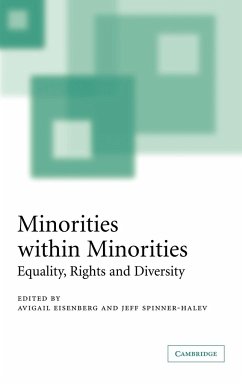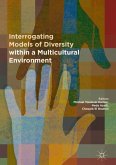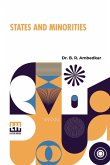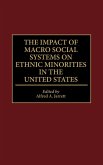Short description/annotation
Distinguished scholars examine the balance between group autonomy and individual rights in this edited volume.
Main description
Most discussions of multiculturalism and group rights focus on the relationship between the minority and the majority. This volume advances our understanding of minority rights by focusing on conflicts that arise within minority groups and by examining the different sorts of responses that the liberal state might have to these conflicts. Groups around the world are increasingly successful in maintaining or winning autonomy. In light of this trend, a crucial question emerges: what happens to individuals within groups who find that their group discriminates against them(?)33; This volume brings together distinguished scholars who examine this question by weaving together normative political theory with case studies drawn from South Africa, the United States, India, Canada, and Britain. Classical liberalism, deliberative democracy, feminism, and associative democracy are among the theoretical frameworks used to offer solutions to the complex set of issues raised by minorities within minorities.
Table of contents:
Introduction Avigail Eisenberg and Jeff Spinner-Halev; Part I. Toleration: 1. Tolerable liberalism Melissa S. Williams; 2. A liberalism of conscience Lucas Swaine; Part II. Equality: 3. Multiculturalism and feminism: no simple question, no simple answers Susan Moller Okin; 4. Can intra-group equality co-exist with cultural diversity(?)33;: re-examining multicultural frameworks of accommodation Gurpreet Mahajan; 5. Gender versus culture: not always a deep disagreement Anne Phillips; 6. The rights of internal linguistic minorities Alan Patten; Part III. Individual Autonomy: 7. Autonomy, association and pluralism Jeff Spinner-Halev; 8. Sexual orientation, exit and refuge Jacob T. Levy; 9. On exit Oonagh Reitman; 10. Exit 'exit rights': reframing the debate Daniel M. Weinstock; Part IV. Self-Determination: 12. Identity and liberal politics: the problem of minorities within minorities Avigail Eisenberg; 13. Internal minorities and indigenous self-determination Margaret Moore; 14. Self-determination as a basic human right: the draft UN Declaration of Rights of Indigenous Peoples Cindy Holder; Part V. Democracy: 15. Associative democracy and minorities within minorities Veit Bader; 16. A deliberative approach to conflicts of culture Monique Deveaux.
Hinweis: Dieser Artikel kann nur an eine deutsche Lieferadresse ausgeliefert werden.
Distinguished scholars examine the balance between group autonomy and individual rights in this edited volume.
Main description
Most discussions of multiculturalism and group rights focus on the relationship between the minority and the majority. This volume advances our understanding of minority rights by focusing on conflicts that arise within minority groups and by examining the different sorts of responses that the liberal state might have to these conflicts. Groups around the world are increasingly successful in maintaining or winning autonomy. In light of this trend, a crucial question emerges: what happens to individuals within groups who find that their group discriminates against them(?)33; This volume brings together distinguished scholars who examine this question by weaving together normative political theory with case studies drawn from South Africa, the United States, India, Canada, and Britain. Classical liberalism, deliberative democracy, feminism, and associative democracy are among the theoretical frameworks used to offer solutions to the complex set of issues raised by minorities within minorities.
Table of contents:
Introduction Avigail Eisenberg and Jeff Spinner-Halev; Part I. Toleration: 1. Tolerable liberalism Melissa S. Williams; 2. A liberalism of conscience Lucas Swaine; Part II. Equality: 3. Multiculturalism and feminism: no simple question, no simple answers Susan Moller Okin; 4. Can intra-group equality co-exist with cultural diversity(?)33;: re-examining multicultural frameworks of accommodation Gurpreet Mahajan; 5. Gender versus culture: not always a deep disagreement Anne Phillips; 6. The rights of internal linguistic minorities Alan Patten; Part III. Individual Autonomy: 7. Autonomy, association and pluralism Jeff Spinner-Halev; 8. Sexual orientation, exit and refuge Jacob T. Levy; 9. On exit Oonagh Reitman; 10. Exit 'exit rights': reframing the debate Daniel M. Weinstock; Part IV. Self-Determination: 12. Identity and liberal politics: the problem of minorities within minorities Avigail Eisenberg; 13. Internal minorities and indigenous self-determination Margaret Moore; 14. Self-determination as a basic human right: the draft UN Declaration of Rights of Indigenous Peoples Cindy Holder; Part V. Democracy: 15. Associative democracy and minorities within minorities Veit Bader; 16. A deliberative approach to conflicts of culture Monique Deveaux.
Hinweis: Dieser Artikel kann nur an eine deutsche Lieferadresse ausgeliefert werden.








